Immune system & cell protection

Products for immune system & cell protection
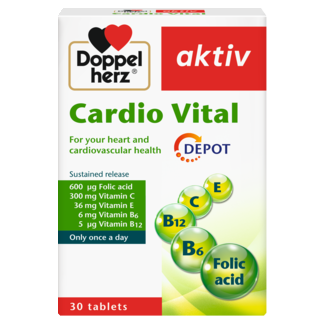
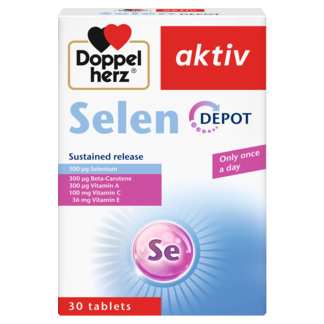
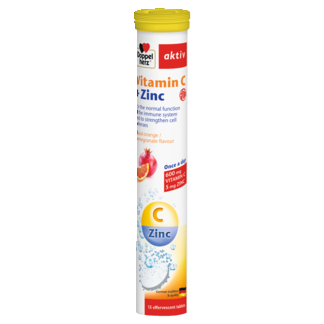
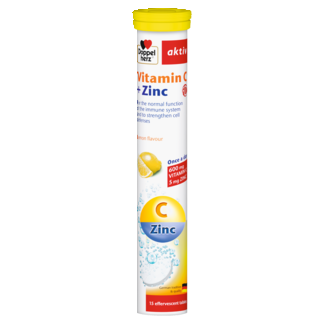
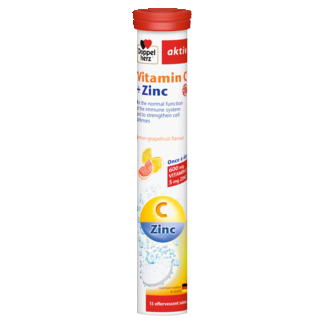
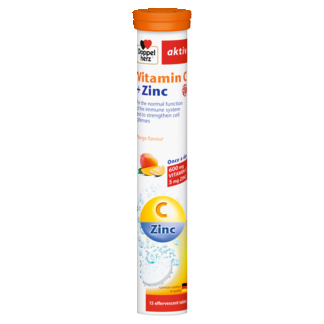
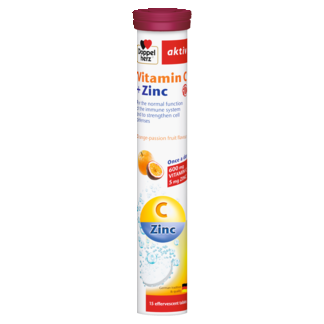
Products for immune system and cell protection
Our body's own defense system has a variety of possibilities available and normally protects our organism very effectively. At birth, our immune system is not yet fully developed, but it "learns" continually. We have an innate defense against all enemies of our body, but our immune system can also specifically combat certain pathogens that are recognized in a secondary infection.
The good news: Everyone can actively support the protection of cells from oxidative stress and strengthen their immune system! Sufficient sleep, exercise in the open air as well as regular phases of rest to recharge the batteries are important prerequisites.
Another indispensable approach is a good supply of nutrients for our body's own defenses. In particular, sufficient quantities of vitamins C and D as well as the trace elements selenium and zinc should be ingested with our food regularly.
These nutrients contribute to the normal function of the immune system and the protection of cells against oxidative stress.
Tips for a strong immune system:
- Wash hands often
- Drink enough
- Air rooms regularly
- Sauna and hot/cold showers
- Exercise in the open air
- Avoid stress
- Keep intestinal flora healthy
- Get sufficient sleep
- Ensure good supply of nutrients
Vitamin D – supports the immune system
Very likely, you haver heard and read more and more about vitamin D lately. And for good reason, since vitamin D not only contributes to normal bone maintenance and muscle function, but is also indispensable for our immune system! It mobilizes our body's defense mechanism enabling it to combat undesired germs – but only if it is available in sufficient quantities.

However, the fact is that according to the most recent German National Consumption Survey, 82 % of men and 91 % of women do not have enough vitamin D in their bodies.
Another fact is that vitamin D is one of the few vitamins that the body can produce itself. This does require, however, sunlight on our skin.
During the winter months, the sun is not high enough in the sky to emit a sufficient amount of UV-B rays. Also, more and more people stay indoors, for instance on account of work, or avoid direct sunlight. Elderly people, in particular, show extremely low vitamin D values as the intrinsic production naturally declines with age.
A vitamin D rich diet is recommended especially in the dark season. But on the other hand, there are only a few food items, such as liver and fatty sea fish, that contain major quantities of the vitamin.
Antioxidants - cell protection with zinc, selenium, vitamin C and vitamin E
Antioxidants, such as zinc, selenium, vitamin C and vitamin E support the normal function of the immune system and contribute to protecting the cells against oxidative stress. But what actually is "oxidative stress?"
Oxidative stress is triggered by so-called "free radicals." These are the aggressive, cell-damaging substances we are exposed to on account of environmental impacts, such as car exhaust fumes, ozone or cigarette smoke. Our body's own protection system is capable of accommodating a certain quantity of these aggressive compounds in order to avoid potential cell damage.
And nature offers support: Antioxidants (radical catchers) have cell-protecting properties and contribute to maintaining the functionality of the cells.
Trace elements, such as selenium or zinc, or the vitamins C and E, are among these antioxidants.
Vitamin C (ascorbic acid) is found in many fruits and vegetables. The best known suppliers of vitamin C are, of course, citrus fruits, but vegetables like broccoli or kale can even contain more vitamin C. But watch out: Valuable ascorbic acid, being soluble to water, can be lost in the cooking process.
Vitamin E (tocopherol) is a vegetable vitamin, which is why vegetable oils and nuts are leaders in terms of vitamin E content. Small quantities of the precious vitamin are, however, also contained in eggs and butter, for example.
The essential trace elements zinc and selenium must also be ingested with food in sufficient quantities. Food products of animal origin contain more zinc than vegetable-based food. When it comes to the leader of high-zinc food, however, opinions tend to differ sharply regarding the oyster.
Good selenium sources are, for example, fish, seafood, veal and egg yolk. Selenium is actually contained in plant-based foods, but the intensive crop cultivation of German farmland has had an impact on the selenium content of flour and bread